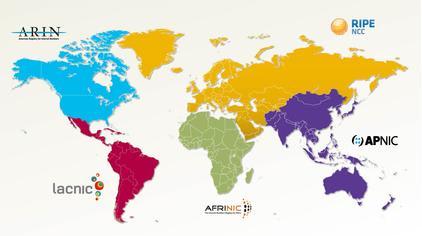RIPE NCC is one of the five Regional Internet Registries (RIRs) responsible for allocating Internet resources globally. RIPE NCC is a non-profit organization founded in 1992 that administers IP addresses in Europe and the Middle East.
As a fast growing email service provider (ESP) with a growing infrastructure footprint, it makes a lot of sense for Proton Mail to become a Local Internet Registry (LIR). As a LIR, Proton Mail now has our own allocation of IPv4 and IPv6(new window) addresses. This is an important milestone as we continue to grow. Presently, the European IPv4 space is nearly exhausted(new window), and the IPv4 allocation we have received as a LIR will ensure that Proton Mail has sufficient IPv4 resources to support all future growth.
A very important aspect of providing a good user experience is email deliverability. This basically means ensuring non-spam messages sent from Proton Mail accounts properly make it into the recipient’s inbox and are not flagged as spam. Many ESPs around the world use IP reputation to make this determination.
Having our own IPv4 block of addresses gives us the ability to move IPs between datacenters meaning if Proton Mail ever has to move into different facilities in Switzerland, we can keep our IPs with high reputation and continue to ensure good deliverability for our users. Having control over an entire block also means other IPs in our block can not be given out to third parties who may be engaged in spamming activities which would degrade the reputation of our IPs and lead to deliverability problems for our users.
With this recent step, Proton Mail now has control over our IP addresses, in addition to owning and controlling all our server hardware. Both of these are key elements which help us to ensure the highest level of privacy and reliability for our users over the long term.
